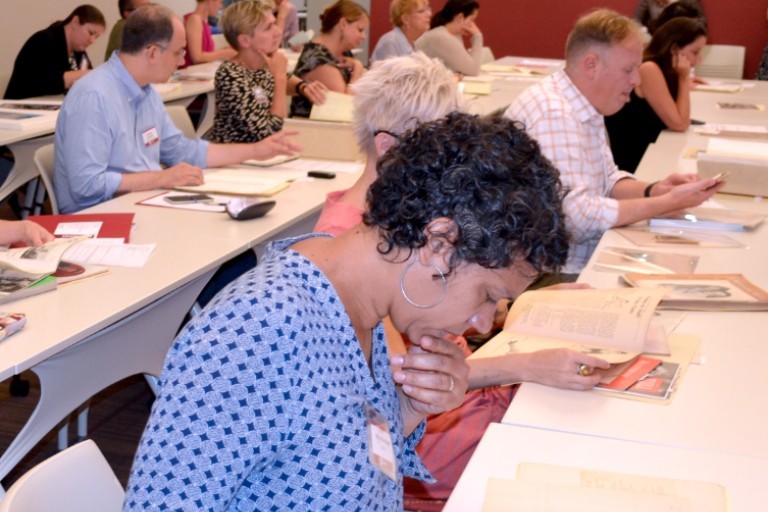The Department of Teaching & Learning fosters an integrated approach to information literacy education. Information literacy involves using information critically in both curricular and extracurricular contexts. It includes but also extends beyond using library resources. While information literacy involves a complex range of interrelated abilities and dispositions, it may be broken into the following dimensions:
- Inquiry: Identifying and evaluating information needs and in an academic context, exploring and developing research questions;
- Evaluation: Assessing how information was created, by whom, and why and what relevance or value it has in a given context;
- Knowledge creation: Using information to construct and communicate knowledge while recognizing that this is an ever-evolving process;
- Conversation: Engaging in the exchange of ideas and knowledge through informed and respectful dialogue.
Across all disciplines of study, the processes of research and inquiry give students a common experience for discovering, synthesizing and contributing to scholarly conversations. By creating opportunities for students to seek, analyze, and use knowledge to create something new, librarians and faculty influence students’ critical thinking and self-efficacy. The learning experiences that evolve out of these inquiry-based research endeavors often transcend course content and disciplinary thinking, and help students establish a foundation of scholarly thought and critical awareness vital to their academic success and lifelong learning.
The Department of Teaching & Learning is dedicated to:
- connecting the libraries to student learning and the student experience at IUB
- collaborating with other librarians and faculty to integrate information literacy into the curriculum
- creating teaching-related opportunities for outreach to academic and non-academic departments








